Soft power is no longer a concept but has gradually become a development strategy of many countries in the world .
In the context of globalization, deep integration with the trend of cooperation and peace, the use of soft power to enhance the prestige and position of the country in the international arena is increasingly valued. In particular, the story of developing cultural soft power is of special interest. Even cultural soft power is a fundamental factor increasing the competitiveness between countries, dominating the political , economic factors as well as the foreign policy of each country.
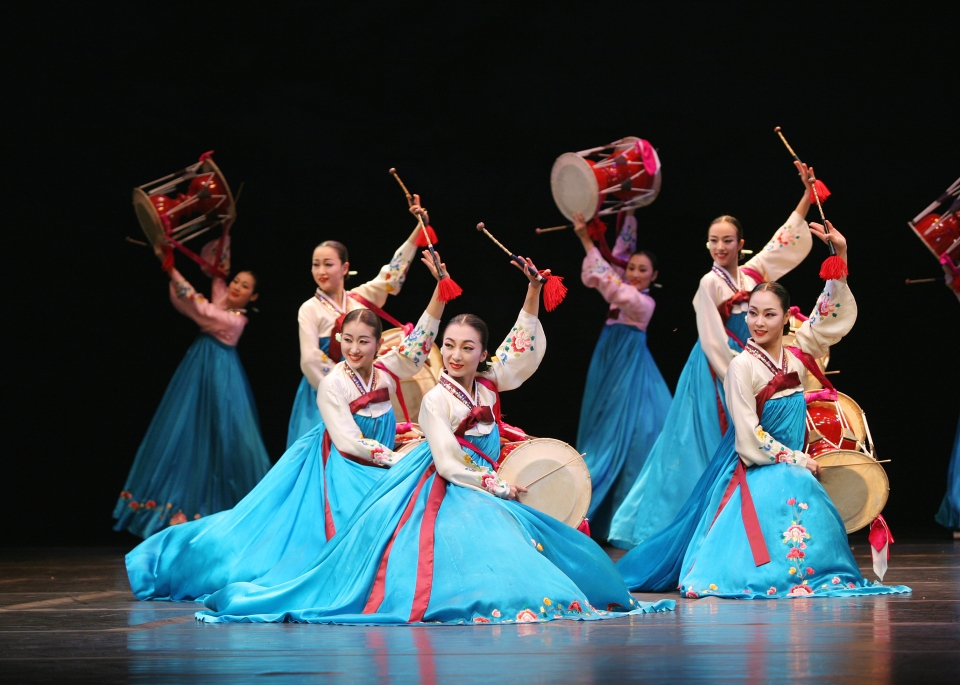 |
| A Korean cultural performance in Vietnam. Korea is a country that puts cultural development as one of the key policies of the State. (Source: Cinet) |
1. Soft power is a concept introduced by American Professor Joseph Nye in the early 90s of the 20th century, understood as the ability to create attraction, allure, and appeal so that other countries voluntarily change their behavior and policies in accordance with what they want, instead of forcing through economic and military power.
Also in Joseph Nye's soft power theory system, cultural soft power is a type of soft power that has the ability to attract, persuade, influence, and appeal of a country to other countries through spiritual and ideological cultural values, implemented through non-coercive methods to achieve the strategic goals of that country in international relations.
Cultural soft power is implicitly understood as a type of power or a force that regulates the behavior of the transmitting subject to the receiving object through a non-coercive method of transmission like hard power.
Looking at countries in the region and around the world, many countries have been successful in developing cultural soft power, making the national image more attractive in the eyes of international friends. The United States is a typical example in using culture as a power to increase its position and influence in the world through the entertainment industry such as music and cinema.
In Asia, Korea is a country that devotes a lot of resources to cultural development, making culture an industry associated with political and foreign goals. In just a few decades, the image of Korea has spread widely throughout the region and the world. The two most powerful industries in Korean culture are cinema and music.
Through works of art, Korea has enhanced its position and demonstrated the attractiveness of Korean culture. Countries such as France, Italy, Japan, China, Singapore... are all countries that value cultural factors, considering culture as an effective bridge to promote the strength, position, and image of the nation to international friends.
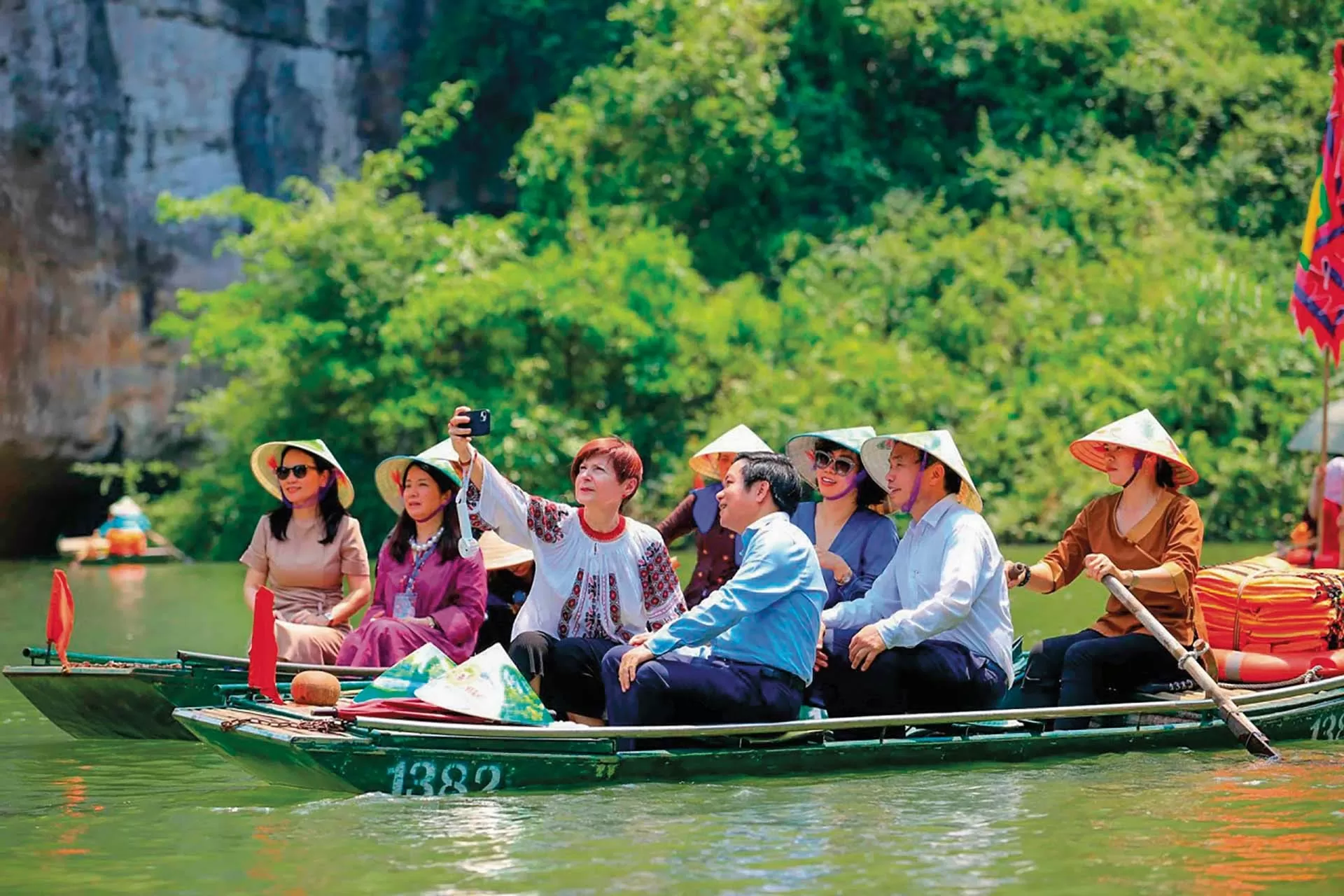 |
| President of the United Nations Educational, Scientific and Cultural Organization (UNESCO) General Conference Simona-Mirela Miculescu during a visit to the Trang An Scenic Landscape Complex World Heritage Site, April 2024. (Photo: Anh Tuan) |
2. For Vietnam, the soft power of culture is understood as the ability to promote material and spiritual cultural values in the process of building and defending the Fatherland, helping to spread national cultural values to many countries around the world.
In the history of building and defending the country, cultural soft power is expressed in the image of a nation with a strong spirit of patriotism, values of altruism, a spirit of mutual support, and tolerance that are very convincing. This spirit and behavior were summarized in Nguyen Trai's "Binh Ngo Dai Cao": "Using great justice to defeat cruelty/ Using benevolence to replace violence". Currently, Vietnam's cultural soft power also lies in its sensitivity, ease of integration, adaptation, and selective absorption of new things from other cultures.
The father of the "soft power" theory, Professor Joseph Nye, when visiting Vietnam, commented: The most attractive points of Vietnam's soft power are the spirit of autonomy, national independence, economic development policy and culture, in which he especially emphasized that Vietnamese culture is always attractive and appealing to Western countries.
Not only spiritual values, Vietnamese culture is also richly expressed in a system of historical and cultural relics and unique landscapes, creating a diverse and rich culture. Vietnam currently has 8 world cultural heritages, 15 intangible cultural heritages, 10 documentary heritages, 11 world biosphere reserves, three global geoparks, and 9 ramsar sites recognized and listed by UNESCO.
The country has about 40,000 relics and nearly 70,000 intangible cultural heritages that have been inventoried, including 130 special national relics, 3,633 national relics, 571 intangible cultural heritages included in the National Intangible Cultural Heritage List, 294 artifacts and groups of artifacts that are national treasures. In addition, we also have 200 museums, including 127 public museums and 73 non-public museums, which store and display over 4 million documents and especially rare artifacts.
Currently, the whole country has nearly 2,000 folk artisans and elite artisans who possess the quintessence and secrets of practicing various types of cultural heritage. This can be said to be an endless and rich resource that serves as the foundation for promoting cultural soft power, making Vietnamese culture influential and attractive.
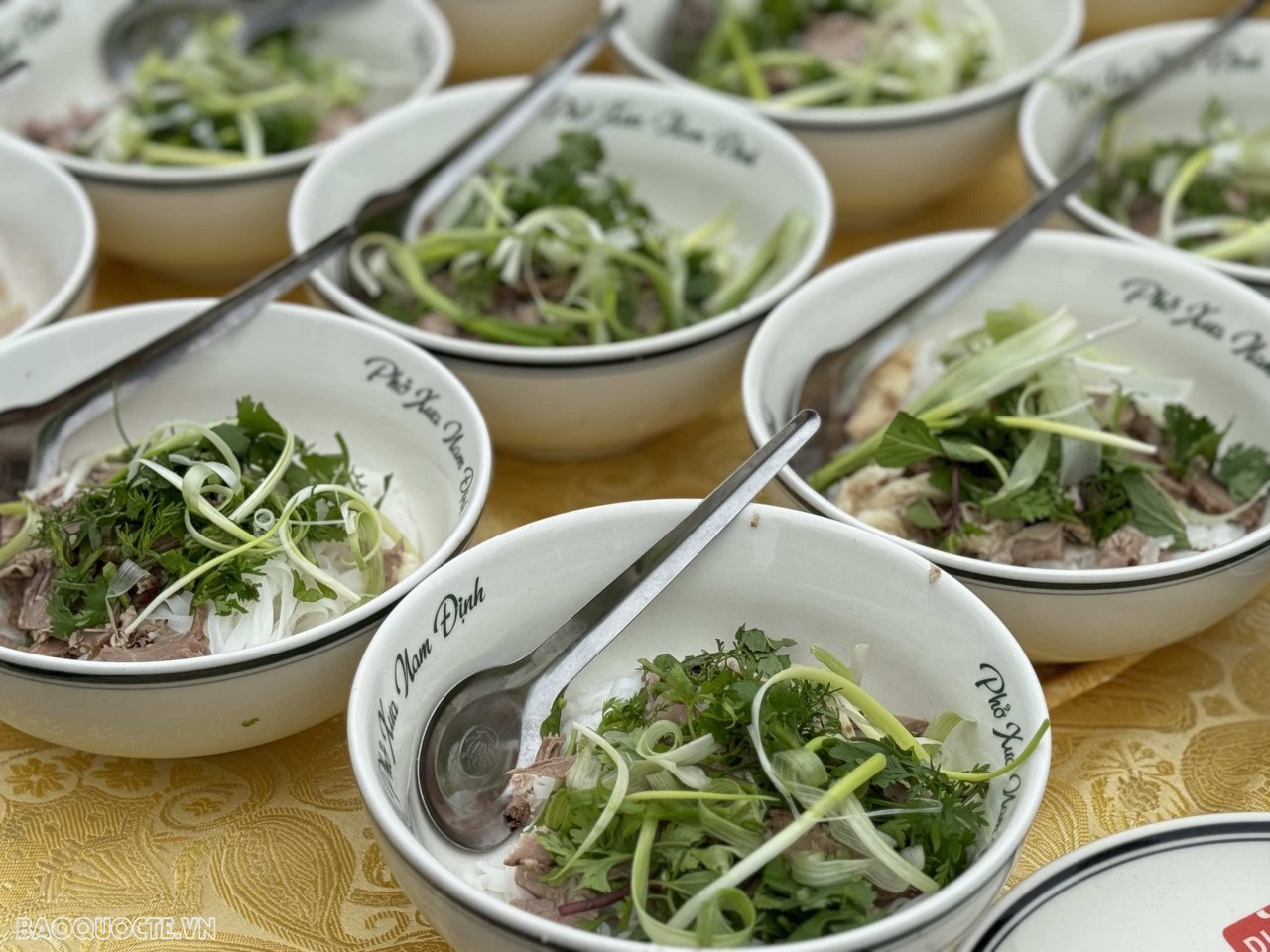 |
| On August 9, the Ministry of Culture, Sports and Tourism issued Decision No. 2326/QD-BVHTTDL announcing the inclusion of "Folk knowledge of Pho Nam Dinh province in the National Intangible Cultural Heritage List". (Photo: Dieu Linh) |
The 13th National Party Congress determined: "Building and promoting cultural factors to truly make a breakthrough in socio-economic development and international integration". The Government's cultural development strategy with a vision of 2030 also clearly stated the goal: "Strive for cultural industries to contribute 7% of GDP". At the National Cultural Conference in November 2021, the late General Secretary Nguyen Phu Trong emphasized: "Pay more attention to preserving, embellishing and promoting national cultural values, tangible and intangible cultural values of regions, of ethnic minorities, combined with absorbing the cultural quintessence of the times. Develop the soft power of Vietnamese culture, contributing to enhancing the overall national strength in the coming time".
In recent years, culture has achieved many important achievements. We have implemented many innovative policies, proactively opened cultural cooperation with many countries, opened the cultural market, changed the thinking of managers and people about cultural development, diversified forms of cultural diplomacy... Vietnamese culture has a strong influence on the international arena.
However, it must be admitted that, compared to many countries in the region and the world, Vietnam's cultural soft power is still limited. We have not yet fully exploited the potential and strengths of culture in national development. The cultural industry has only just begun, is not yet clear and still has many shortcomings.
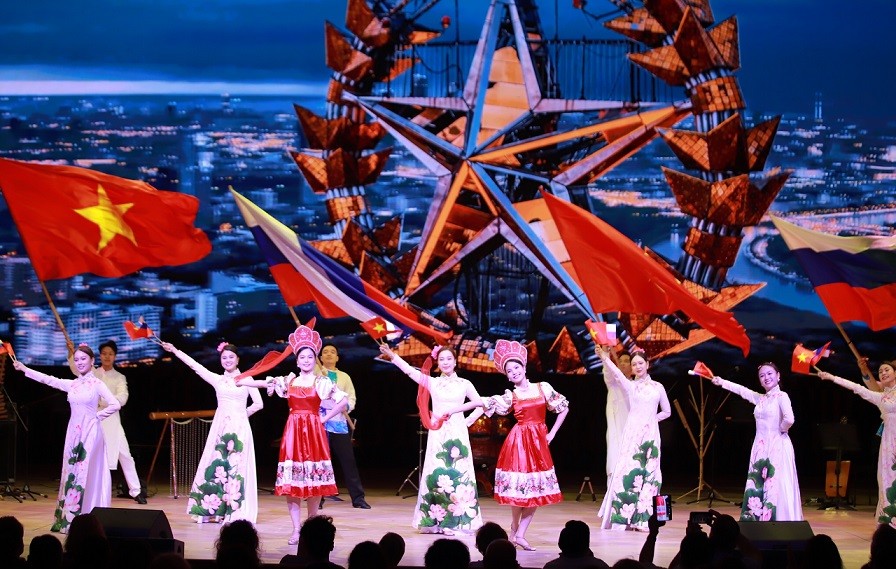 |
| Opening a series of activities to promote Vietnamese culture in the Russian Federation. (Source: VNA) |
3. We have a cultural development strategy with specific goals. However, to develop cultural soft power, it requires a process and needs to be better realized in all aspects. Therefore, in the coming time, we need to focus on the following contents:
Firstly, it is necessary to continue to improve cultural mechanisms and policies, review, adjust and supplement cultural development plans and projects in accordance with the reality and requirements of national development in the new situation.
Second, it is necessary to promote research, theory, and practical summary work, thereby absorbing the experiences of countries around the world in perfecting policies and guidelines on promoting Vietnam's cultural soft power.
Third, closely linking cultural development with national security protection through cultural diplomacy, to increase the appeal of Vietnamese culture to influence and create friendly and close international relations, thereby enhancing Vietnam's prestige and position in the international arena.
Fourth, it is necessary to have reasonable policies for overseas Vietnamese so that each Vietnamese person abroad can become a cultural bridge, helping to widely and deeply promote cultural values to attract foreign organizations and individuals to work, do business, travel, and settle in Vietnam, making Vietnamese cultural values increasingly popular and widespread in the international community. This is a way to use cultural soft power in maintaining peace and preventing risks of political instability.
With the advantage of a rich and unique culture, leaving many good impressions on international friends from the past to the present, promoting cultural soft power is a correct strategy of our Party and State with the goal of building, developing and protecting the country. Vietnamese cultural values have been and are a great resource and driving force for national development.
Source: https://baoquocte.vn/phat-huy-suc-manh-mem-van-hoa-trong-thoi-ky-hoi-nhap-292674.html


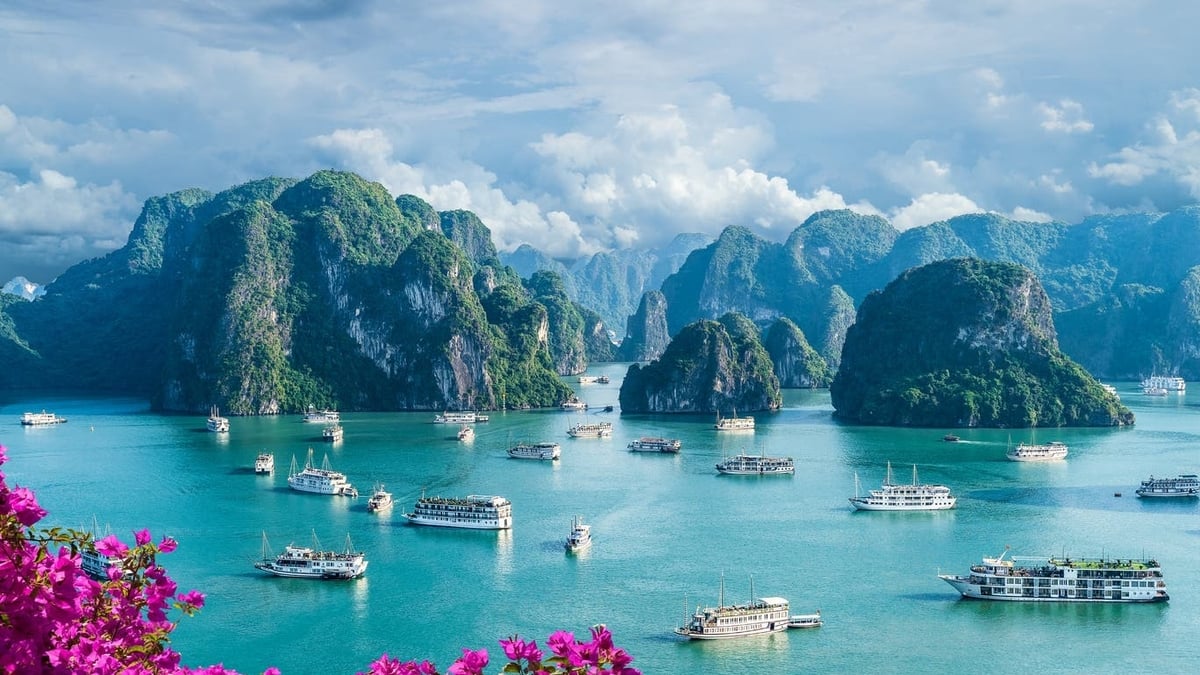



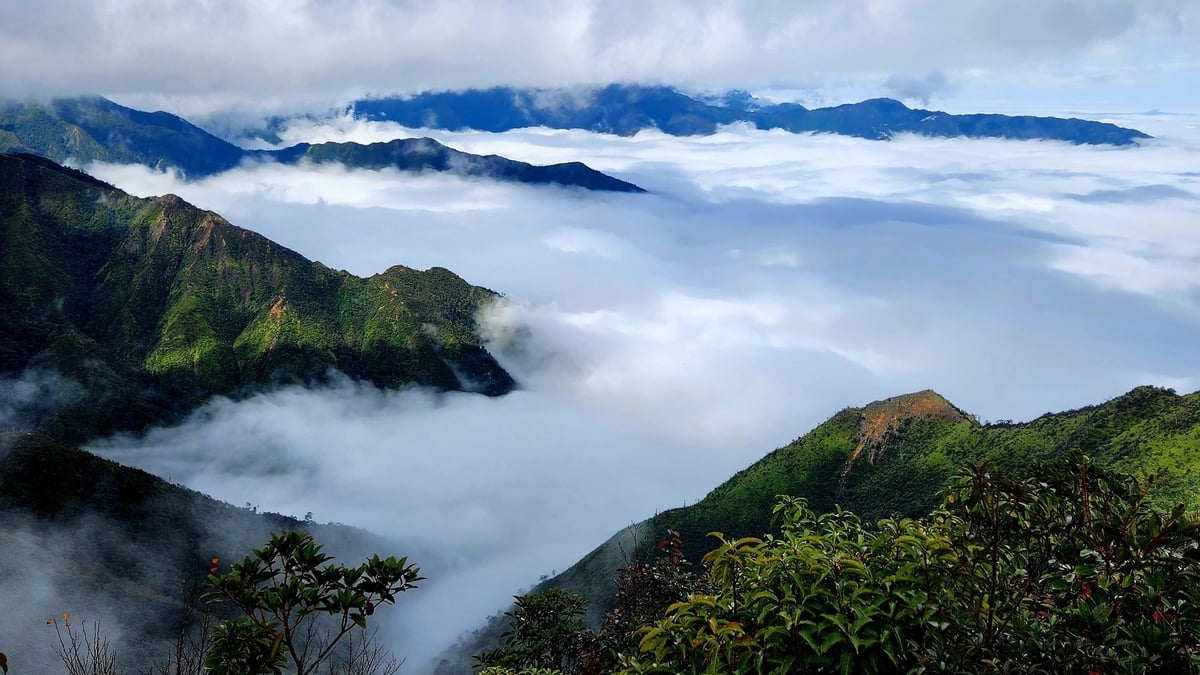

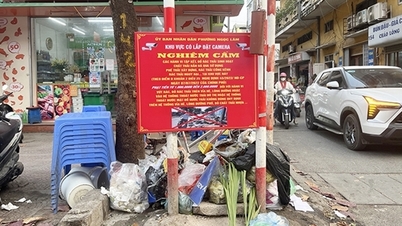

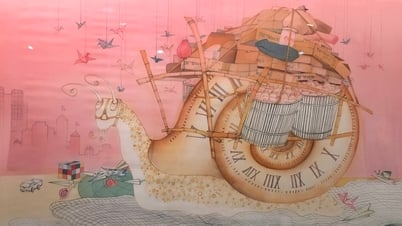



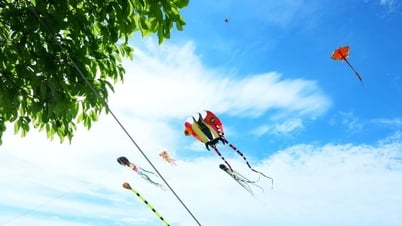
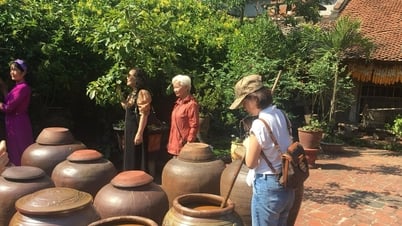
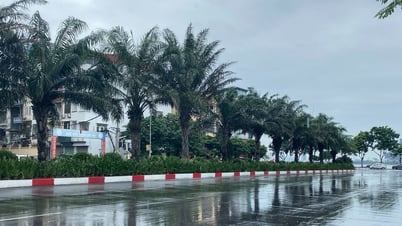





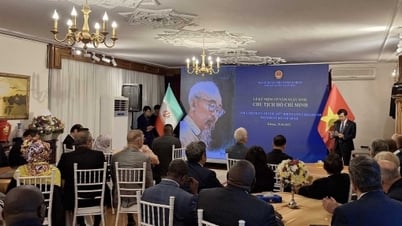
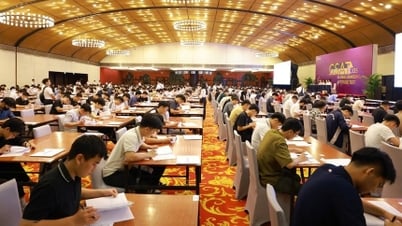

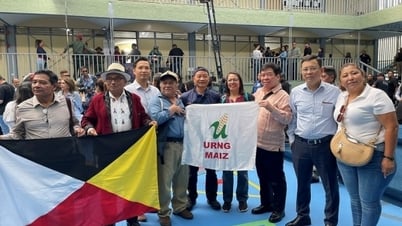
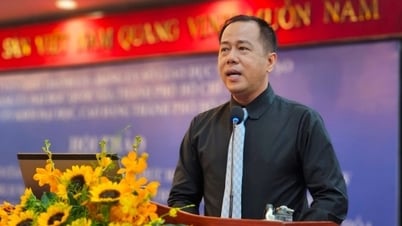



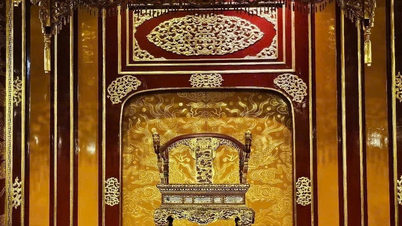

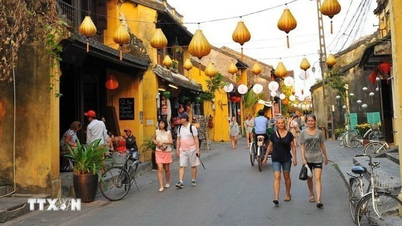



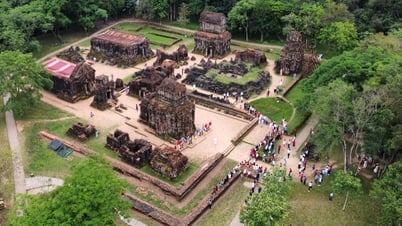







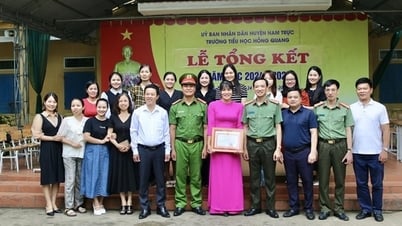


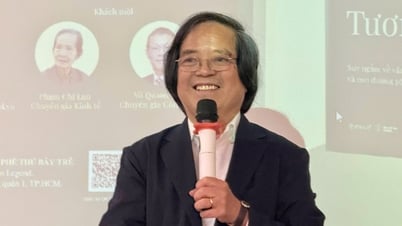
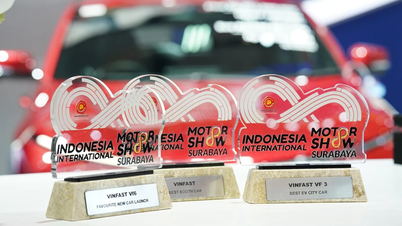














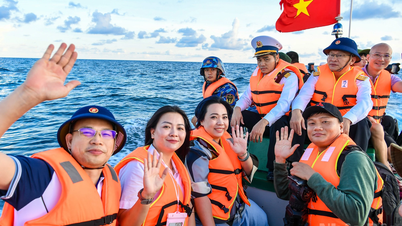
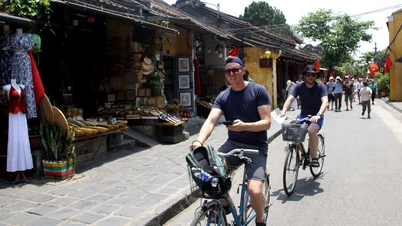

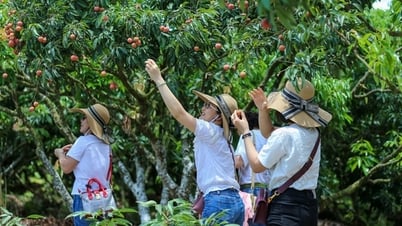


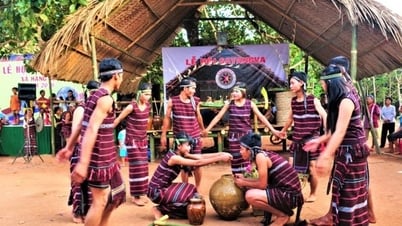
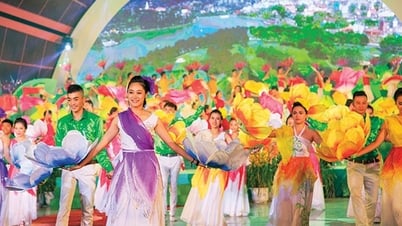

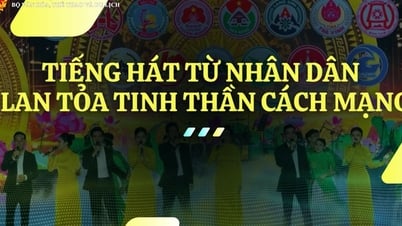
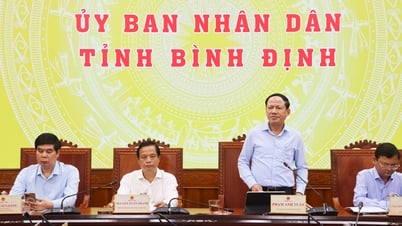



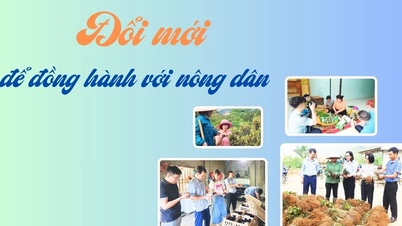

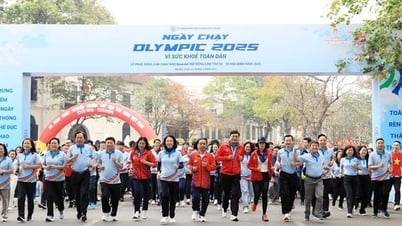

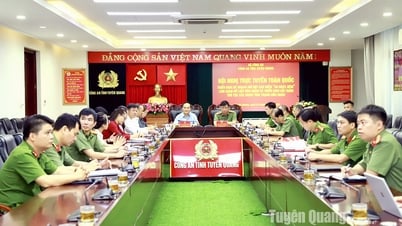








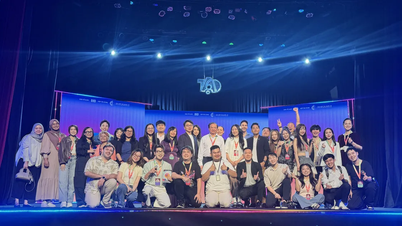

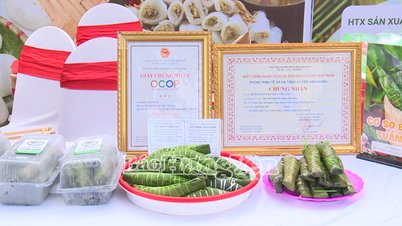

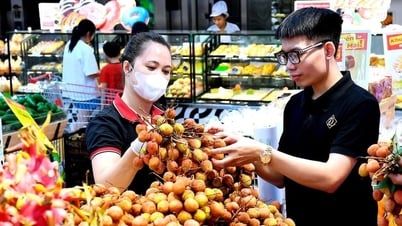

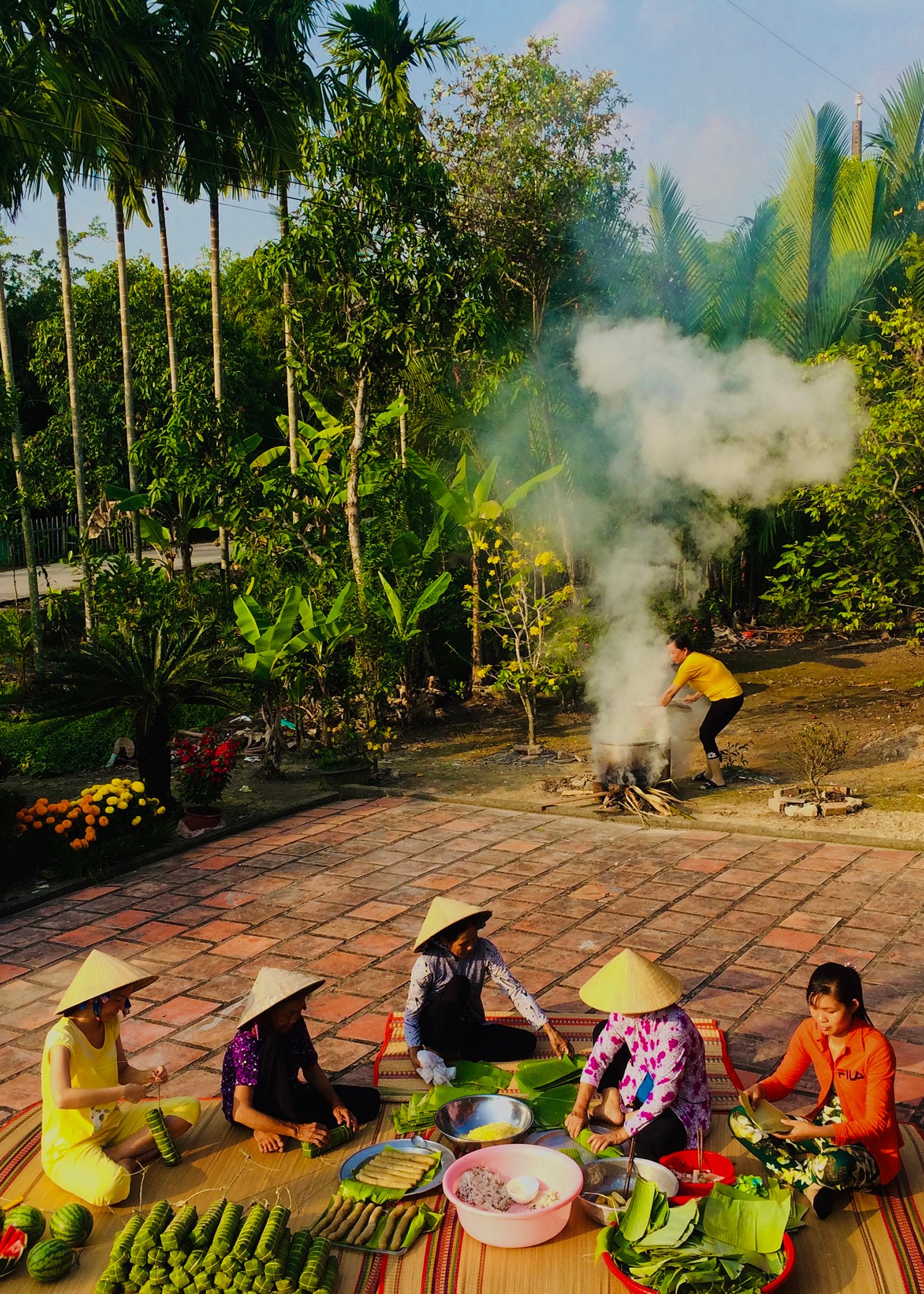
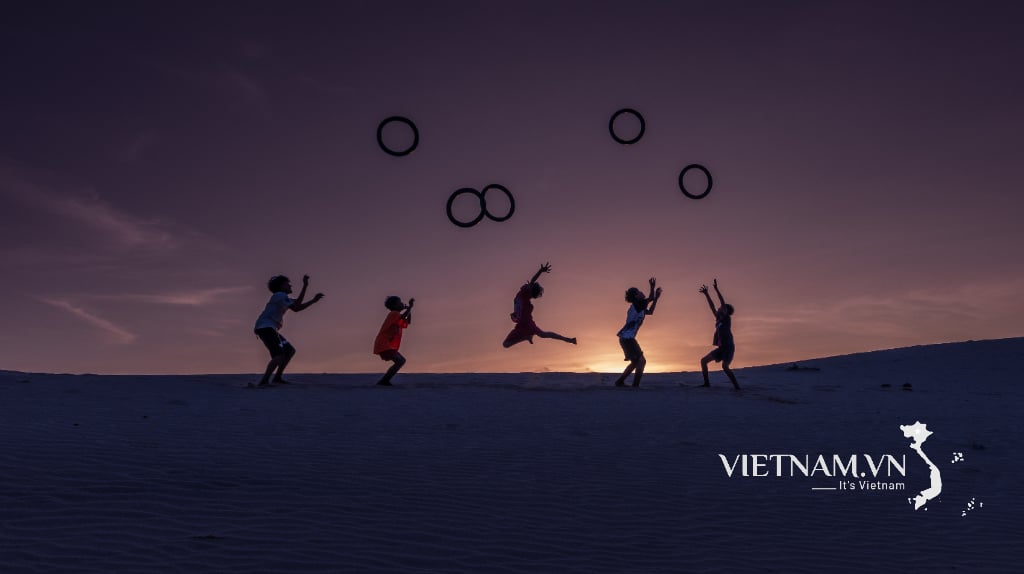

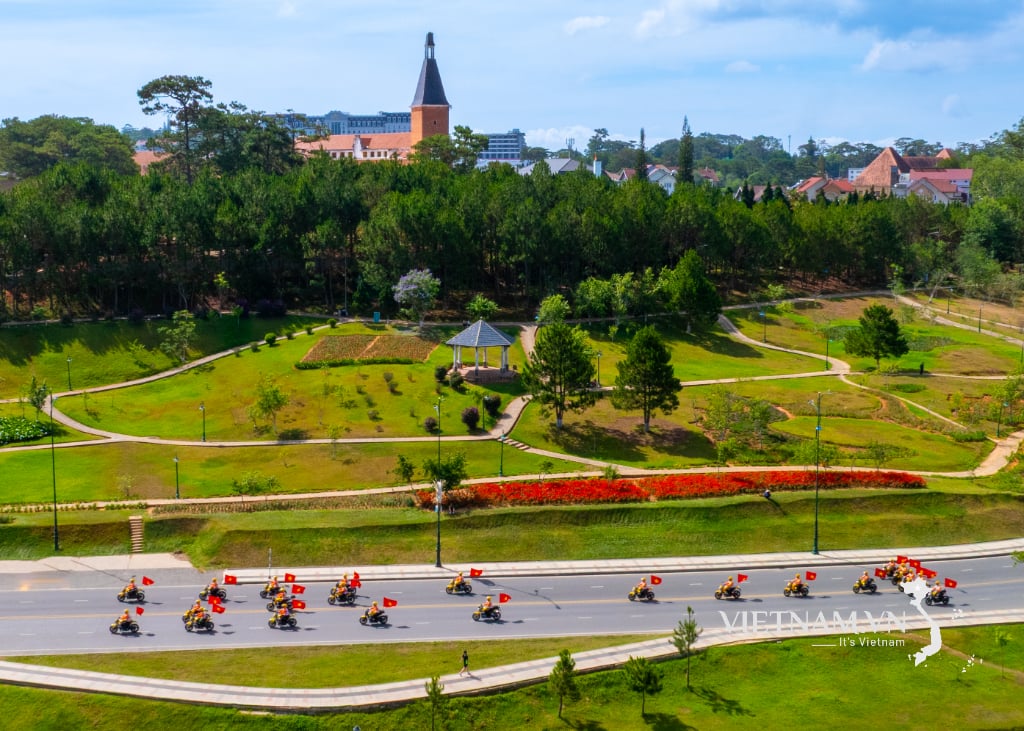
Comment (0)